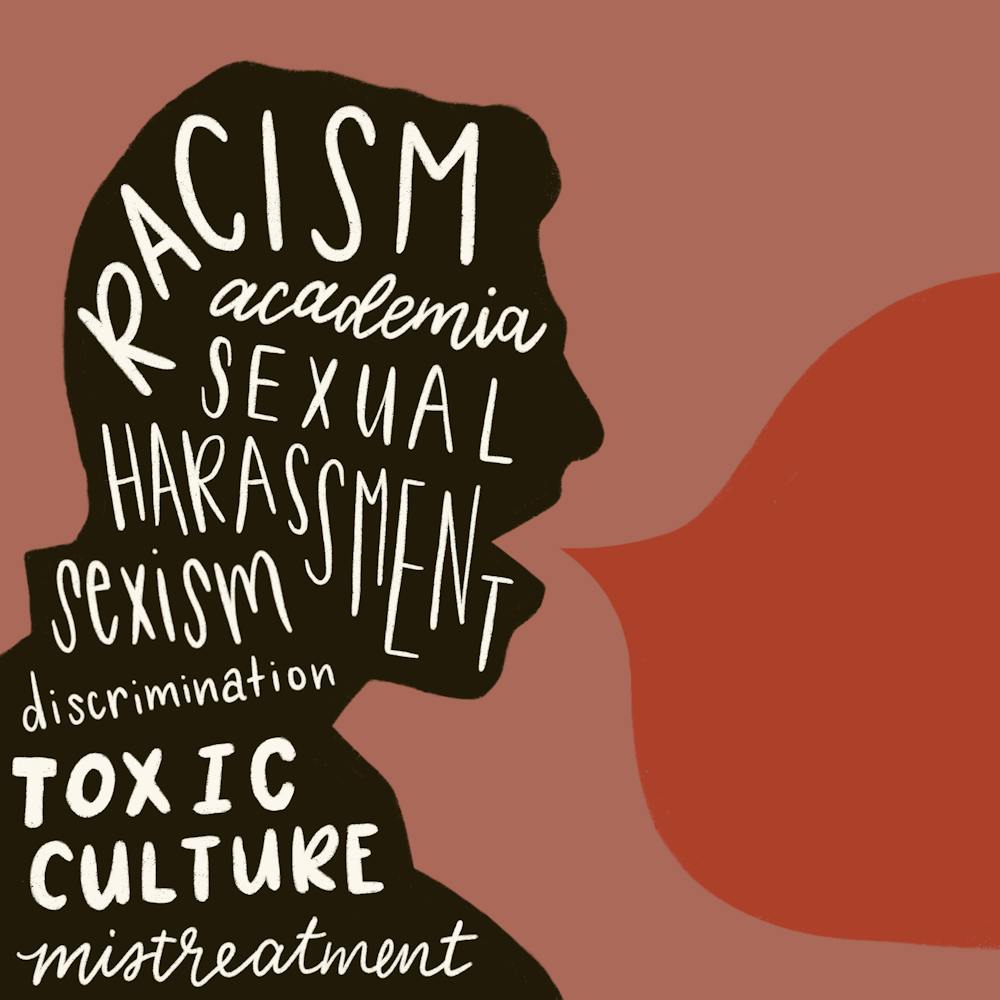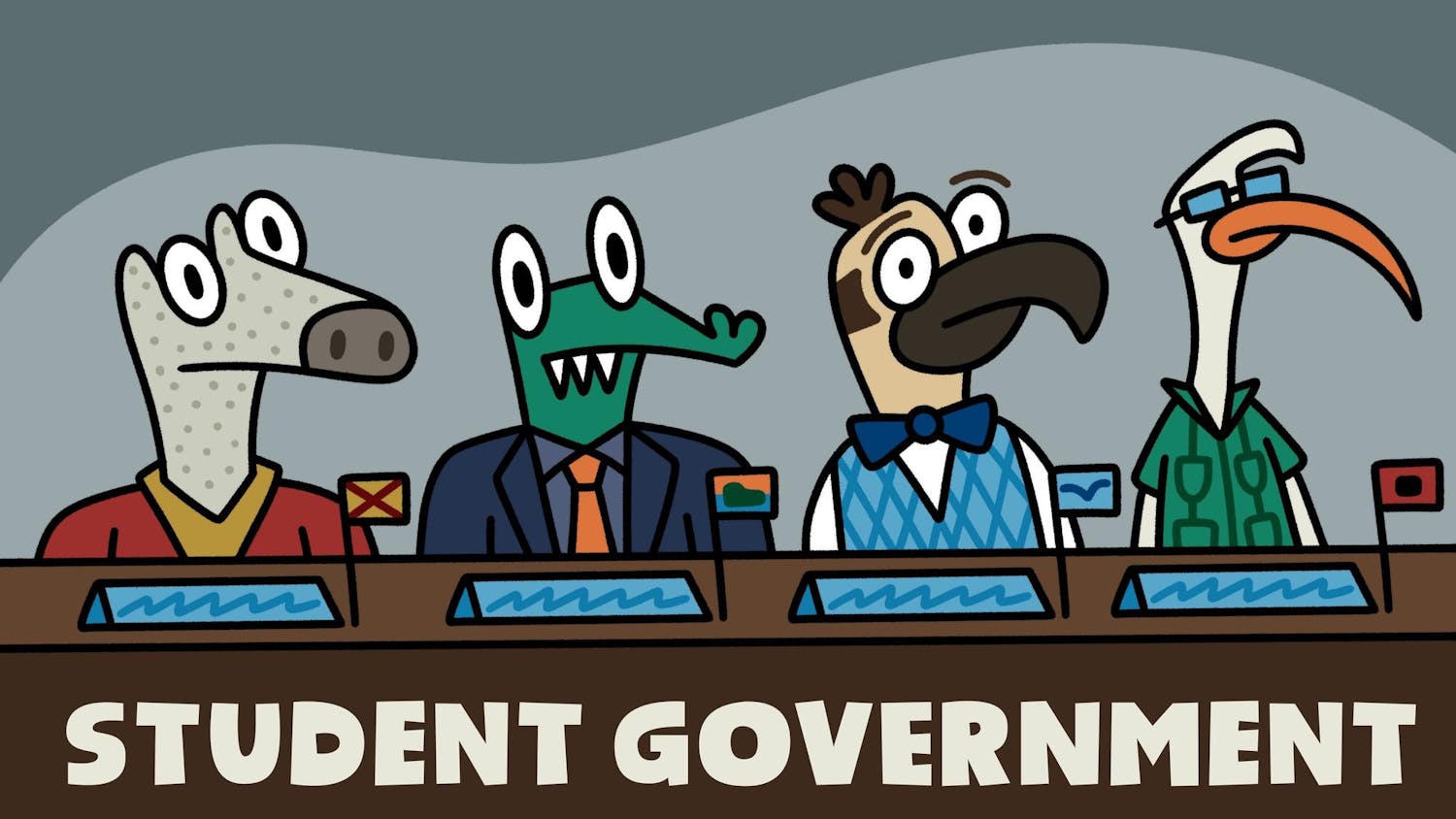Dr. Sankalp Gilda was exhausted. He balanced 60-hour work weeks with a doctoral student load at the behest of his supervisor, migraines and regular discrimination from his status as an Indian international student.
His exhaustion worsened throughout the nine months of his supervisor’s taunts.
Once, Gilda found out his supervisor told his department he was going to a conference in California. The supervisor was actually flying out to visit his girlfriend. Gilda reported it to the department.
How dare you complain against me and put my potential tenure in jeopardy? You know you have already switched supervisors once, right? You know you are on a visa, right?
The supervisor forced Gilda to apologize and threatened to quit working with him — putting his graduation and legal status at risk. To maintain an active student visa status, international doctoral students must have their graduate work supervised by a faculty member.
So Gilda apologized. But the supervisor didn’t let him go without one last dig.
Are you apologizing to me because you really mean it, or because you know I can impact your future job prospects?
His supervisor was Zachary Slepian, a Harvard-educated assistant professor who joined the UF astronomy department in 2018.
Gilda, a 29-year-old UF doctoral 2021 graduate, filed a formal complaint with the federal Equal Employment Opportunity Commission against UF’s astronomy department for discrimination, harssment, unpaid wages and intentional infliction of emotional damage. He also filed a lawsuit against UF for unpaid wages.
He first realized his work environment was problematic when Slepian texted him at night, on the weekends and even during his lunch hour. Slepian questioned Gilda’s whereabouts and demanded he get back to work.
When Gilda objected, Slepian would change the subject or call him “submissive.”
Slepian expected Gilda to work from 8 a.m. to 6 p.m. Monday through Friday — he worked anywhere from 50 to 70 hours per week.
However, Slepian’s other graduate student — who was white — had a set weekly meeting time and usually worked the 20 hours per week required by the graduate student contract.
Gilda even stayed past 7 p.m. several times because Slepian would make long phone calls to his girlfriend in California before meeting with him. Slepian also tried to push Gilda into listing him as a co-author on his paper because he “paid [Gilda’s] salary.”
Gilda started developing migraines, feeling nauseous and suspecting he had ADHD in November 2019 — seven months after he began working with Slepian. The symptoms worsened from the stress of 60-hour work weeks and Slepian’s maltreatment.
Gilda told Slepian he was considering seeking professional help for his undiagnosed ADHD, which was later confirmed by a psychiatrist. The encounter quickly soured, according to his EEOC complaint.
I don’t pay you to make excuses. I pay you to write papers and make me famous.
Gilda objected to Slepian’s statement and expressed his discontent with his tone. But Slepian fired back.
Don’t ever talk back to me. I won’t tolerate backtalk from someone like you. Stay in your lane, don’t antagonize me and you might have a future in America.
Slepian made other racially insensitive comments, reminding Gilda he was on a visa and calling him an “idiot” after he brought up his concerns about discrimination.
“None of this — the demand to be present at the department at all times, the demand to stay late so he could prioritize personal affairs, and statements such as ‘I don’t give a s---’ and ‘I don’t give a f---’ — was ever demanded by Zack to his other student,” Gilda wrote in his formal complaint.
On more than six occasions, Gilda attempted to report Slepian’s behavior to astronomy department chair Elizabeth Lada, who started working at UF in 1996.
Lada told Gilda to “try and get along” and to “focus on [his] research.” She laughed when he brought up Slepian’s verbal abuse, dismissed his concerns and asked him to see her if Slepian hit him.
In January 2020, Gilda met with the deans of the College of Liberal Arts and Sciences. In retaliation, Slepian quit Gilda’s graduate committee.
The committee gave Gilda 30 days to find a new adviser — or he would be kicked out of his doctoral program.
“There are large power dynamics at play, and pretty much no guardrails to protect you if things go sideways,” Gilda said. “The culture really is [to] keep your mouth shut, focus on your work, don't make a lot of noise and get out.”
After Gilda found a new adviser, the committee assigned him a rushed deadline. He was expected to pass his graduate exam and write a first-author paper in four months — tasks that normally take doctoral students around three years.
Gilda found a way to meet his deadline and graduated in August. A month later, he took to Twitter to share his experiences with Slepian, no longer worried about it affecting his future at UF.
Ryan Loomis, a 29-year-old Harvard doctoral graduate, knew Slepian in graduate school. While working at the Harvard Smithsonian Center for Astrophysics, he heard Slepian make inappropriate comments about female colleagues and speakers.
Slepian would refuse to respect anyone he considered “beneath him,” Loomis said.
“Everything that [Gilda] describes in terms of confirming the demeaning and belittling behavior is very much in line with what I experienced,” Loomis said. “Not a single colleague I've spoken to from the CFA since then has been surprised by this.”
Josh Speagle, a 28-year-old Harvard doctoral graduate, also encountered Slepian while working at the CFA. Slepian was known for discrimination, harassment and condescending remarks during his time at Harvard, Speagle said.
Speagle was offered a professorship at UF in April 2020. He felt reluctant to accept the position, as Slepian worked in the same department, and decided to confront him about the verbal abuse allegations while at the CFA.
The pair scheduled a talk for May 2, which, Speagle said, resulted in 40 minutes of Slepian berating him and asking who had made those allegations.
“I think I cried for the better part of an hour afterwards, and it took me quite a while to come to terms with what had happened,” Speagle said. “I would classify his behavior as being incredibly aggressive and bullying.”
Speagle declined the job offer the next day.
Krista Romita Grocholski, a 34-year-old former UF doctoral student under Lada, also reached out to Gilda with similar encounters.
She said Lada discouraged her from asking questions and reprimanded her for asking for help. Romita Grocholski called Lada’s advising style “neglectful and isolating” and recalled how her emails to the professor once went unanswered for two months.
After scheduling a meeting with her graduate council to solve these issues, Romita Grocholski said Lada reprimanded her.
“It was just an opportunity for Elizabeth to beat me down,” she said. “And then no one stood up for me. From that point on, I knew that I couldn't trust any of the faculty to care what happened to me or not.”
Romita Grocholski believes the problem extends beyond the astronomy department, however.
“I think that there’s a larger culture that UF cares more about its ranking than its graduate students,” Romita Grocholski said. “It doesn’t get to that ranking without graduate students.”
UF filed a motion on Oct. 14 to dismiss Gilda’s first legal action based on unpaid overtime wages. The formal charge Gilda filed with the EEOC hasn’t yet been investigated, but Gilda believes he has a strong case due to Slepian’s history of discrimination.
Lada and UF spokesperson Hessy Fernandez declined to comment on the situation due to ongoing litigation. Slepian didn’t respond to email and phone requests for comment as of Sunday.
However, in an email to a former colleague, Slepian wrote he didn’t do or say anything that Gilda claims.
“The allegations that [Gilda] has made are horrendous, and they represent words and behaviors that I would never do, and would equally abhor in any colleague if I were to hear of it being done by them,” Slepian wrote in the email.
Gilda encourages graduate students in his position to keep a journal of any discrimination or harassment they face and press charges after they graduate.
“Unfortunately, I think litigation is the only way where we can actually start to bring about systemic changes,” Gilda said. “I would encourage: note, note, note. Document everything.”
After Gilda’s Twitter thread, students from universities across the country messaged him and chronicled similar experiences in graduate student programs.
“I hoped I would become famous for my research,” Gilda said. “Hopefully that will happen too, but it actually feels good that I’m part of — or at least I’m trying my hardest — to bring about positive change.”
Despite the challenges, Gilda graduated with four first-author papers, 12 contributed and invited talks and a $150,000 Hubble grant. But above all, he stood up to a supervisor who, he believes, considered himself invincible.
Contact Max at mtaylor@alligator.org. Follow her on Twitter @MTaylor_Journ

Max is a first year journalism major. In the past, she worked as the Editor-in-Chief of her high school's yearbook, and she is now a News Desk Assistant for The Alligator. When she isn't reporting, Max enjoys reading and rock music.






